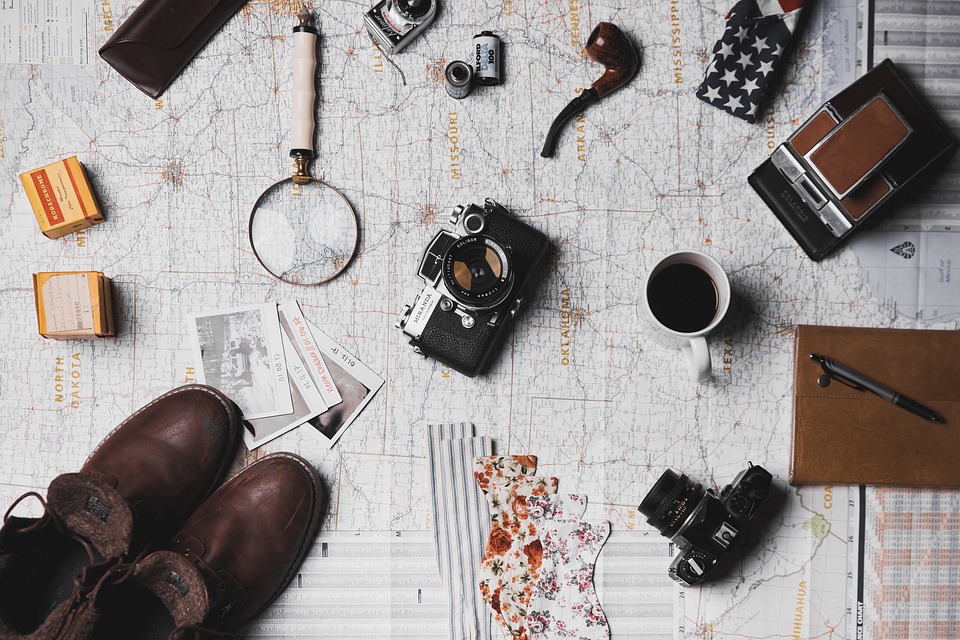From A-Z: The Complete Guide to Traveling with Kids
Traveling with kids can be a daunting task, but with proper planning and preparation, it can also be an incredibly rewarding experience for the whole family. From A-Z, here is a complete guide to make traveling with kids a breeze.
A – Activities: Keep the little ones entertained during long flights or car rides with plenty of activities. Pack coloring books, small toys, and travel-sized games to keep them busy and engaged.
B – Budget: Set a budget for your trip and stick to it. Consider the cost of transportation, accommodation, and activities, and factor in any additional expenses for your children.
C – Comfort: Make sure your children are comfortable during their travels. Pack their favorite blanket or stuffed animal, and dress them in comfortable clothing for the journey.
D – Destinations: Choose family-friendly destinations that offer plenty of activities and attractions for kids. Look for destinations with amusement parks, beaches, and child-friendly museums and zoos.
E – Essentials: Don’t forget to pack all the essentials for your kids, including diapers, wipes, snacks, and extra changes of clothes. It’s always better to be over-prepared than under-prepared.
F – Food: Plan ahead for meals and snacks during your travels. Pack plenty of healthy snacks and consider bringing a small cooler with drinks and perishable snacks for the journey.
G – Gear: Invest in quality travel gear for your kids, such as a lightweight stroller, a comfortable baby carrier, and a car seat that meets airline safety standards.
H – Health: Prioritize your children’s health during your travels. Pack any necessary medications and ensure that they are up to date on vaccinations before you depart.
I – Itinerary: Create a flexible itinerary that allows for rest and relaxation, as well as plenty of time for fun activities. Don’t over-schedule your trip, and be prepared to be flexible if your children need a break.
J – Jet lag: If you’re traveling across time zones, be prepared for jet lag. Try to adjust your children’s sleep schedules before you depart, and schedule plenty of downtime to help them acclimate to the new time zone.
K – Keep it simple: Don’t overpack or overcomplicate your travel plans. Keep it simple and focus on the most important aspects of your trip, such as spending quality time together as a family.
L – Language: If you’re traveling to a foreign country, teach your children some basic phrases in the local language to help them communicate with locals and feel more at ease in their new surroundings.
M – Safety: Always prioritize the safety of your children during your travels. Keep an eye on them at all times, especially in crowded or unfamiliar places, and teach them important safety rules for traveling.
N – Naps: Don’t underestimate the power of naps for your children during your travels. Plan for plenty of downtime and opportunities for your kids to rest and recharge.
O – Organization: Keep all of your children’s belongings organized and easily accessible during your travels. Use packing cubes or travel organizers to keep everything in its place.
P – Patience: Traveling with kids can be challenging, but it’s important to remain patient and flexible. Expect the unexpected and be prepared to roll with the punches.
Q – Quality time: Use your travels as an opportunity to spend quality time with your children. Engage them in conversations about the places you’re visiting, and create special memories that will last a lifetime.
R – Rewards: Consider implementing a reward system for good behavior during your travels. Offer small incentives for good behavior, such as stickers or small treats, to motivate your children to behave well.
S – Snuggle time: Plan for plenty of snuggle time with your children during your travels. Use downtime in your hotel room or on long flights to read stories, play games, and simply cuddle with your little ones.
T – Technology: Use technology as a helpful tool during your travels. Load up your devices with kid-friendly apps, movies, and games to keep your children entertained during long journeys.
U – Unwind: Be sure to schedule some downtime for yourself during your travels. Whether it’s a spa day or a quiet moment alone, be sure to take care of your own well-being in order to better care for your children.
V – Vaccinations: If your travels take you to a destination with specific health risks, be sure to consult with a healthcare provider about any necessary vaccinations for your children.
W – Weather: Check the weather forecast for your destination and pack accordingly. Don’t forget to bring sunscreen, hats, and protective clothing for your children, especially if you’ll be spending time outdoors.
X – eXpect the unexpected: No matter how well you plan, there will always be unexpected challenges when traveling with kids. Be prepared to adapt and make the best of any situation.
Y – Younger children: If you have younger children, be prepared for their specific needs. Bring a travel crib or portable bed, a high chair, and any other necessary baby gear to make your travels as seamless as possible.
Z – Zzz’s: Ensure that your children get plenty of rest during your travels. Stick to their regular bedtime routines as much as possible, and provide a comfortable sleeping environment to help them get a good night’s sleep.
With this complete guide, you can confidently plan a stress-free and enjoyable family vacation with your kids. From A to Z, make the most of your travels and create lasting memories with your little ones.










